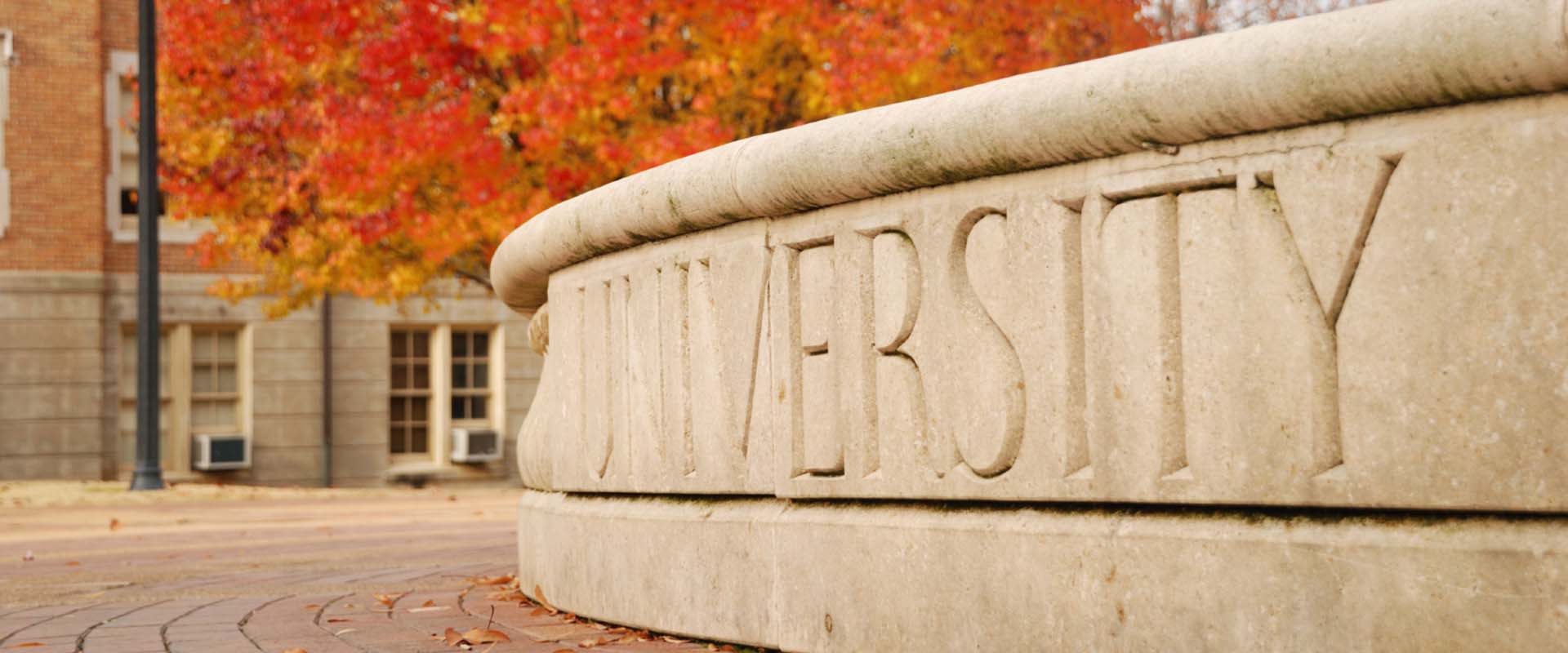Ninth Circuit Upholds Constitutionality Of University Policy Prohibiting Discrimination On The Basis Of Protected Classifications

August 2011
Number 36
In Alpha Delta Chi-Delta Chapter v. Charles Reed (9th Cir. 2011) __ F.3d __, the Ninth Circuit upheld the constitutionality of the San Diego State University's (SDSU) nondiscrimination policy in a challenge brought by two Christian social groups that had been denied official recognition by SDSU for having membership requirements that conflicted with the policy. In doing so, the Ninth Circuit extended the United States Supreme Court's ruling in Christian Legal Society v. Martinez (2010) 561 U.S. __ to hold that public universities may condition a student group's receipt of certain benefits, including funding, on the group's adoption of a nondiscrimination policy that prohibits discrimination on grounds such as race, sex, religion, sexual orientation, and disability.
The Supreme Court held in Martinez that a public institution may require student groups to comply with an all-comers policy before granting them status as recognized student groups. Allcomers policies essentially prohibit discrimination on any ground by requiring student groups to accept any student as a member, regardless of the student's status or beliefs. Such policies are constitutional because they are applied neutrally to all student groups regardless of a group's message or perspective. However, the Supreme Court expressly did not rule on the constitutionality of policies that prohibit discrimination only on enumerated bases, which is the type of policy more commonly found in higher education. (For more on the Martinez case, please see Client News Brief No. 24, July 2010.)
At SDSU, all officially recognized student groups must comply with the university's nondiscrimination policy, which tracks state law barring discrimination on a number of bases such as race, sex, religion, sexual orientation, and disability. Officially recognized student organizations receive several benefits, including funding, access to facilities, and free publicity in school publications.
SDSU administrators repeatedly denied applications for official recognition from a Christian sorority and a Christian fraternity, both of which have various religious requirements for officers and members. The Christian groups brought suit in federal court challenging the constitutionality of SDSU's nondiscrimination policy, arguing that the reasoning and holding of Martinez did not apply because unlike the all-comers policy at issue in that case, SDSU's policy prohibits only certain membership requirements, such as those based on race, sex, and religion.
�According to the Christian groups, SDSU's policy permitted secular groups to discriminate on non-enumerated bases (for example, because SDSU's policy does not forbid political belief discrimination, a Republican organization could exclude Democrats) while prohibiting discrimination based on religious beliefs.
The Ninth Circuit disagreed, holding that SDSU's nondiscrimination policy is constitutional. SDSU's student organization program is a limited public forum, as the university had opened the program for use only by student organizations, rather than the general public. In limited public forums, restrictions may be imposed on members that are reasonable in light of the purpose of the forum and viewpoint neutral. The policy is both reasonable and viewpoint neutral, even though its terms prohibit only certain types of discrimination, because the policy's purpose is to prevent discrimination and remove barriers imposed against historically-excluded groups.
After determining that SDSU's policy is constitutional as written, the Ninth Circuit noted that a triable issue remained as to whether the policy had been only selectively enforced. Based on evidence offered by the Christian groups that SDSU had granted official recognition to groups with membership requirements that violated the school's nondiscrimination policy, the Ninth Circuit sent the case back to the lower court for further proceedings.
While this case concerned the constitutionality of a public university's nondiscrimination policy, the Ninth Circuit has applied a similar analysis in the K-12 setting. In Truth v. Kent School District (9th Cir. 2008) 542 F.3d 634, the Ninth Circuit held that a high school could require student organizations to comply with a policy prohibiting discrimination on protected grounds. (For more on the Truth case, please see Client News Brief No. 41, October 2007.)
If you have any questions regarding the ruling and implications of this decision, or for other higher education or student law issues, please contact one of our eight offices located statewide or consult our website.
Kevin Mills
Shareholder & Higher Education Practice Group Chair
Walnut Creek Office
kmills@lozanosmith.com
Kimberly Gee
Associate
Monterey Office
kgee@lozanosmith.com
2011 Lozano Smith
Number 36
In Alpha Delta Chi-Delta Chapter v. Charles Reed (9th Cir. 2011) __ F.3d __, the Ninth Circuit upheld the constitutionality of the San Diego State University's (SDSU) nondiscrimination policy in a challenge brought by two Christian social groups that had been denied official recognition by SDSU for having membership requirements that conflicted with the policy. In doing so, the Ninth Circuit extended the United States Supreme Court's ruling in Christian Legal Society v. Martinez (2010) 561 U.S. __ to hold that public universities may condition a student group's receipt of certain benefits, including funding, on the group's adoption of a nondiscrimination policy that prohibits discrimination on grounds such as race, sex, religion, sexual orientation, and disability.
The Supreme Court held in Martinez that a public institution may require student groups to comply with an all-comers policy before granting them status as recognized student groups. Allcomers policies essentially prohibit discrimination on any ground by requiring student groups to accept any student as a member, regardless of the student's status or beliefs. Such policies are constitutional because they are applied neutrally to all student groups regardless of a group's message or perspective. However, the Supreme Court expressly did not rule on the constitutionality of policies that prohibit discrimination only on enumerated bases, which is the type of policy more commonly found in higher education. (For more on the Martinez case, please see Client News Brief No. 24, July 2010.)
At SDSU, all officially recognized student groups must comply with the university's nondiscrimination policy, which tracks state law barring discrimination on a number of bases such as race, sex, religion, sexual orientation, and disability. Officially recognized student organizations receive several benefits, including funding, access to facilities, and free publicity in school publications.
SDSU administrators repeatedly denied applications for official recognition from a Christian sorority and a Christian fraternity, both of which have various religious requirements for officers and members. The Christian groups brought suit in federal court challenging the constitutionality of SDSU's nondiscrimination policy, arguing that the reasoning and holding of Martinez did not apply because unlike the all-comers policy at issue in that case, SDSU's policy prohibits only certain membership requirements, such as those based on race, sex, and religion.
�According to the Christian groups, SDSU's policy permitted secular groups to discriminate on non-enumerated bases (for example, because SDSU's policy does not forbid political belief discrimination, a Republican organization could exclude Democrats) while prohibiting discrimination based on religious beliefs.
The Ninth Circuit disagreed, holding that SDSU's nondiscrimination policy is constitutional. SDSU's student organization program is a limited public forum, as the university had opened the program for use only by student organizations, rather than the general public. In limited public forums, restrictions may be imposed on members that are reasonable in light of the purpose of the forum and viewpoint neutral. The policy is both reasonable and viewpoint neutral, even though its terms prohibit only certain types of discrimination, because the policy's purpose is to prevent discrimination and remove barriers imposed against historically-excluded groups.
After determining that SDSU's policy is constitutional as written, the Ninth Circuit noted that a triable issue remained as to whether the policy had been only selectively enforced. Based on evidence offered by the Christian groups that SDSU had granted official recognition to groups with membership requirements that violated the school's nondiscrimination policy, the Ninth Circuit sent the case back to the lower court for further proceedings.
While this case concerned the constitutionality of a public university's nondiscrimination policy, the Ninth Circuit has applied a similar analysis in the K-12 setting. In Truth v. Kent School District (9th Cir. 2008) 542 F.3d 634, the Ninth Circuit held that a high school could require student organizations to comply with a policy prohibiting discrimination on protected grounds. (For more on the Truth case, please see Client News Brief No. 41, October 2007.)
If you have any questions regarding the ruling and implications of this decision, or for other higher education or student law issues, please contact one of our eight offices located statewide or consult our website.
Kevin Mills
Shareholder & Higher Education Practice Group Chair
Walnut Creek Office
kmills@lozanosmith.com
Kimberly Gee
Associate
Monterey Office
kgee@lozanosmith.com
2011 Lozano Smith
As the information contained herein is necessarily general, its application to a particular set of facts and circumstances may vary. For this reason, this News Brief does not constitute legal advice. We recommend that you consult with your counsel prior to acting on the information contained herein.





